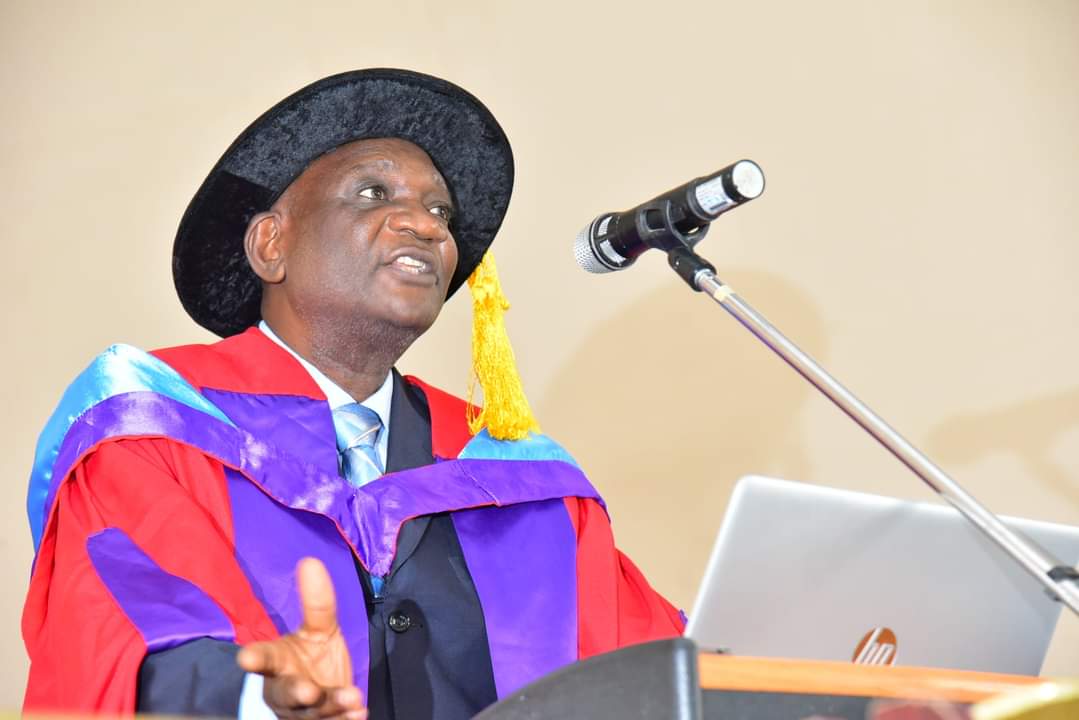A Professor of Agricultural Production Economics has said that increased and improved commercialization of Agriculture through deliberate efforts by Government and key drivers of the sector will guarantee food security in the country.
Adegboyega Oguntade gave the recommendation while delivering the 133rd inaugural lecture of the Federal University of Technology Akure with the title; “Subsistence Farm to Farm Firms; Progress and Challenges,”
Oguntade identified food insecurity as a major issue which must be tackled with the seriousness it deserves.
He said of all the problems confronting Nigeria at the moment, food insecurity could have been avoided with optimal utilization of Agro climatic and other natural resources endowment.
He said the way out is to ensure the nurturing of farms to large industrial concerns that will have major impacts on the economy.
Oguntade submitted that the declining role of agriculture in the Nigerian economy and the emergence of petroleum as the driving force have led to revenue been generated from one source.
He emphasized that for the economy to experience a boost, diversification must be implemented in all totality and large scale agricultural production for local consumption and exports holds the greatest promise. Professor Oguntade said two distinct philosophies of agriculture; which are government direct participation in food production and export through large scale capital intensive corporate farming and modernization and simulation of small holder farmers to increase farm production and yield, must be pursued with vigour.
He restated that Agriculture in Nigeria must transit from subsistence Agriculture to market oriented and commercial agriculture which will lead to generation of increased foreign exchange for the nation and reduced unemployment level.
The Don called for a deliberate effort by government to promote agro-industrial manufacturing activities which depends largely on Agricultural raw materials produced in Nigerian hence increasing production and employment opportunities.
Oguntade said food import bills over the years have remained relatively and constantly high, making it look as if an upward trend in the food import value is a norm.
He said with the level of poverty in the land, access to inadequate quantity and quality by all people and at all times cannot be guaranteed.
He added that given the primacy of food amongst the 3 basic necessities of life, it is not surprising that Nigerians are often angry at themselves and hungry, hence the rise in armed robbery, kidnapping and general violence.
Oguntade advised that state governments should consider embarking on a systematic classification of lands to ensure that lands suitable for Agriculture are used for the purpose alone and the ones for Forestry are reserved for forest plantation.
He counselled that policies must be developed appropriately to implement plan of reorientation for specific subsectors of Nigerian agriculture to the export markets.
He advised that corporate entities with adequate knowledge of export markets and farm firms can collaborate with the government towards the development of such policies standards and plans.
He said that Nigerian farm firms that are active in different agricultural value chain should be encouraged to establish their brand names not only locally but also internationally.
Oguntade a former Associate Director of the Centre for Research and Development (CERAD) and Director, FUTA Business Development Company (BDC) said specially designed incentive should be available for new agricultural exports that Nigeria is trying to promote.
He said to benefit from these incentives farm firms involved must register with relevant government agencies such as Ministry of Agriculture, corporate Affairs Commission, Export Promotions Council among others to ensure that incentives given are received by entities producing Agricultural export commodities.
In his address, the chairman of the occasion and Vice Chancellor, Professor Joseph Fuwape, appreciated the excellent delivery of the lecture.
He described the lecturer as a dogged, astute and prolific researcher who has continued to contribute to the body of knowledge in his area of specialization and to the development of the University in various academic and administrative capacities.


